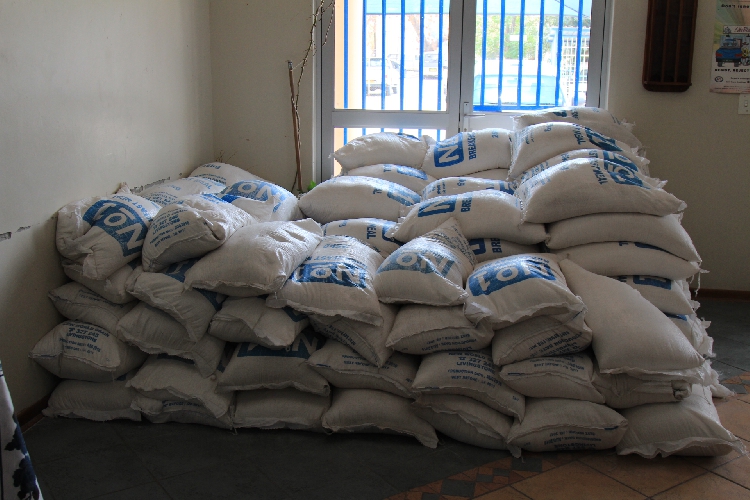Namibia’s drought has been blamed for the increase of smuggled maize meal in the Zambezi region, and residents opt for the illegal products because it is cheaper than the locally-produced.
On Monday, Willbroad Poniso, the deputy director in the Ministry of Finance’s customs and excise north-eastern region, told Nampa there is a worrying increase of contraband maize meal entering the country at non-designated places near Katima Mulilo and as far as Schukmannsburg area in the Kabbe North constituency.
He said the recent interception of contraband maize meal branded as ‘Breakfast’ from Zambia, revealed that many locals affected by the drought prefer buying the illegal product as maize meal in local shops is too expensive for them.
A 25 kilogram bag of maize meal in Zambia cost Kwacha 80 000 (about N$137) and when smuggled into Namibia, one bag sells for N$200, which is still cheaper than the about N$250 for locally-produced maize charged in shops.
“These smugglers are entering the country at unsuspecting times of the day or night. In parts of the region, which borders with Zambia, people can walk to and fro between the two countries as the river is at its lowest,” Poniso said.
Three weeks ago, an ambulance belonging to the Ministry of Health and Social Services, was busted transporting bags of contraband maize meal in Katima Mulilo.
In August and September, the directorate confiscated 570 bags of maize meal and 64 maize grains weighing 25km and 50km, respectively.
The bags of maize grain and maize meal are valued at about N$78 700 and are food products that’s import is controlled by the customs directorate to stimulate local production.
“The maize product is contraband because it is controlled. We are taking strict measure against culprits and confiscating all bags and donating them as part of the drought relief programme,” he said.
When the maize is smuggled into the country, they are not sold in public places but rather in secrecy and delivered directly to buyers.
Street vendors who spoke to Nampa said those willing to purchase the maize meal, usually approach them and place orders, after which they contact their ‘suppliers’ in Zambia to deliver on a certain date.
“Everything is done in a discreet manner because we do not want to be arrested. We have clientele that order and directly pay for the product. This product is cheap and healthy as Zambian nationals are consuming it too,” said a vegetable vendor.
-Nampa
Stay informed with The Namibian – your source for credible journalism. Get in-depth reporting and opinions for
only N$85 a month. Invest in journalism, invest in democracy –
Subscribe Now!










